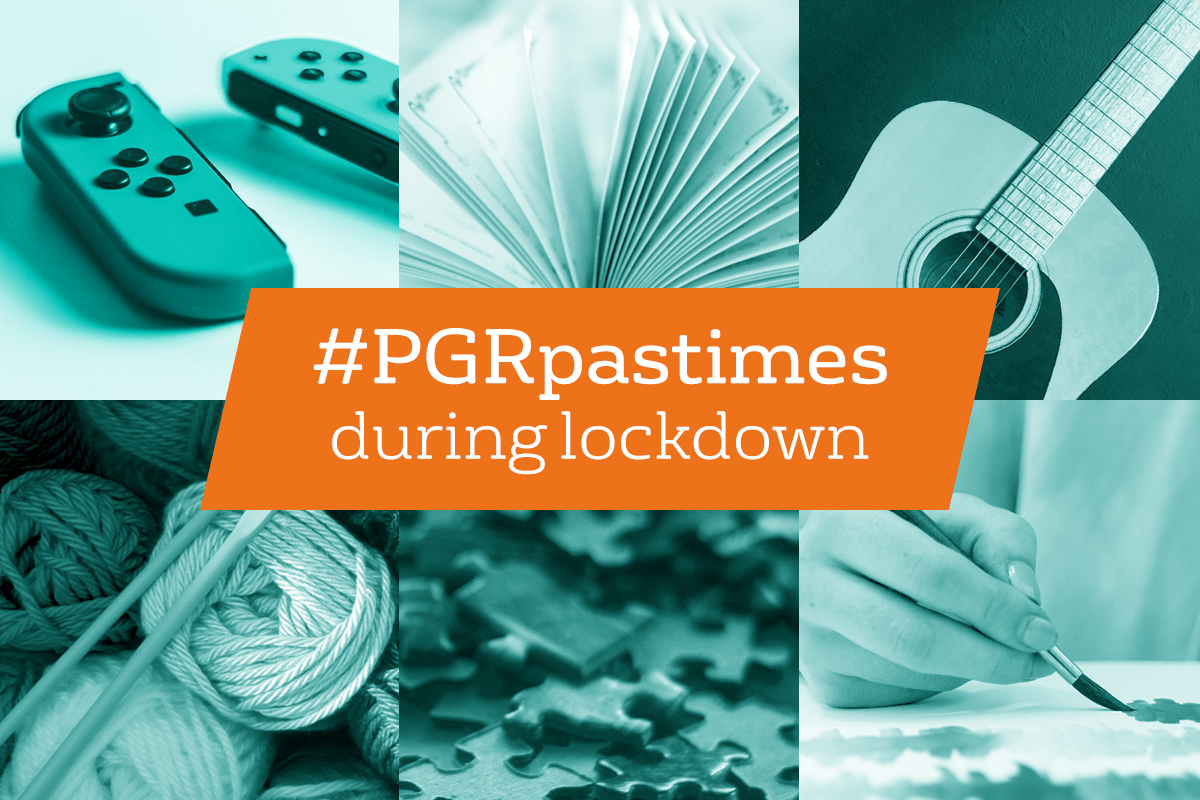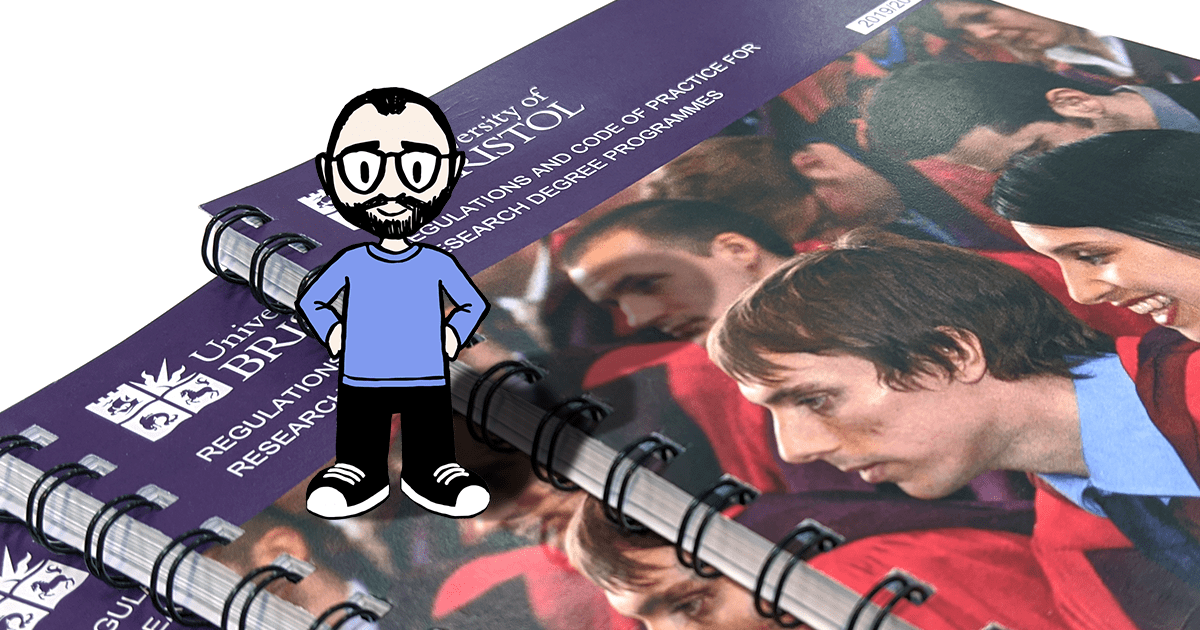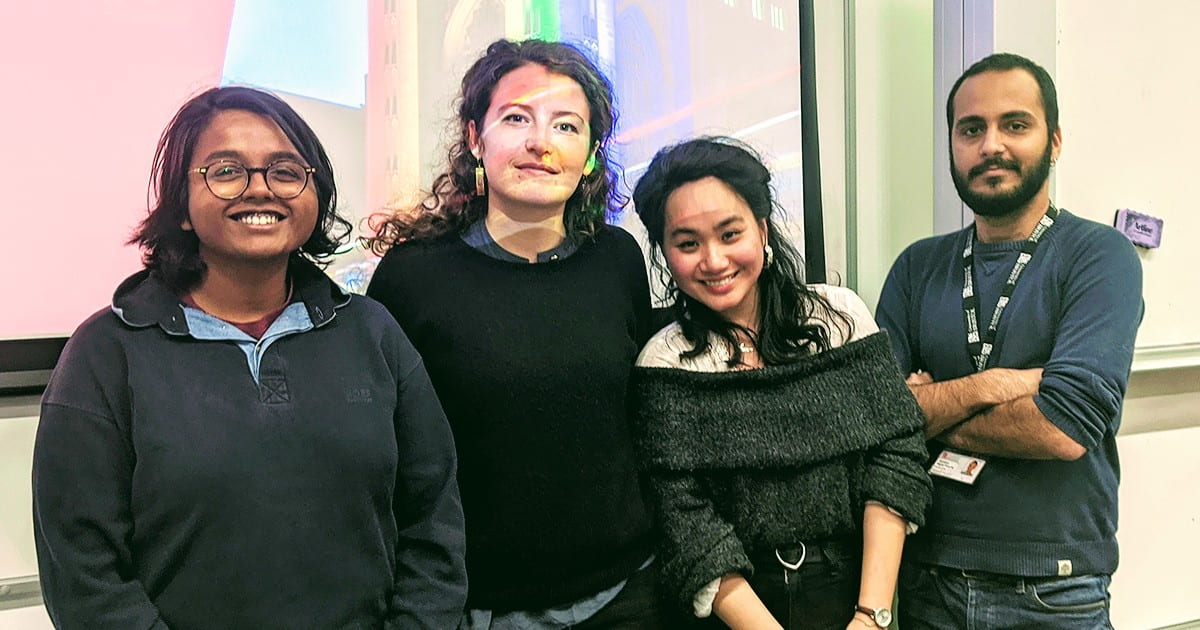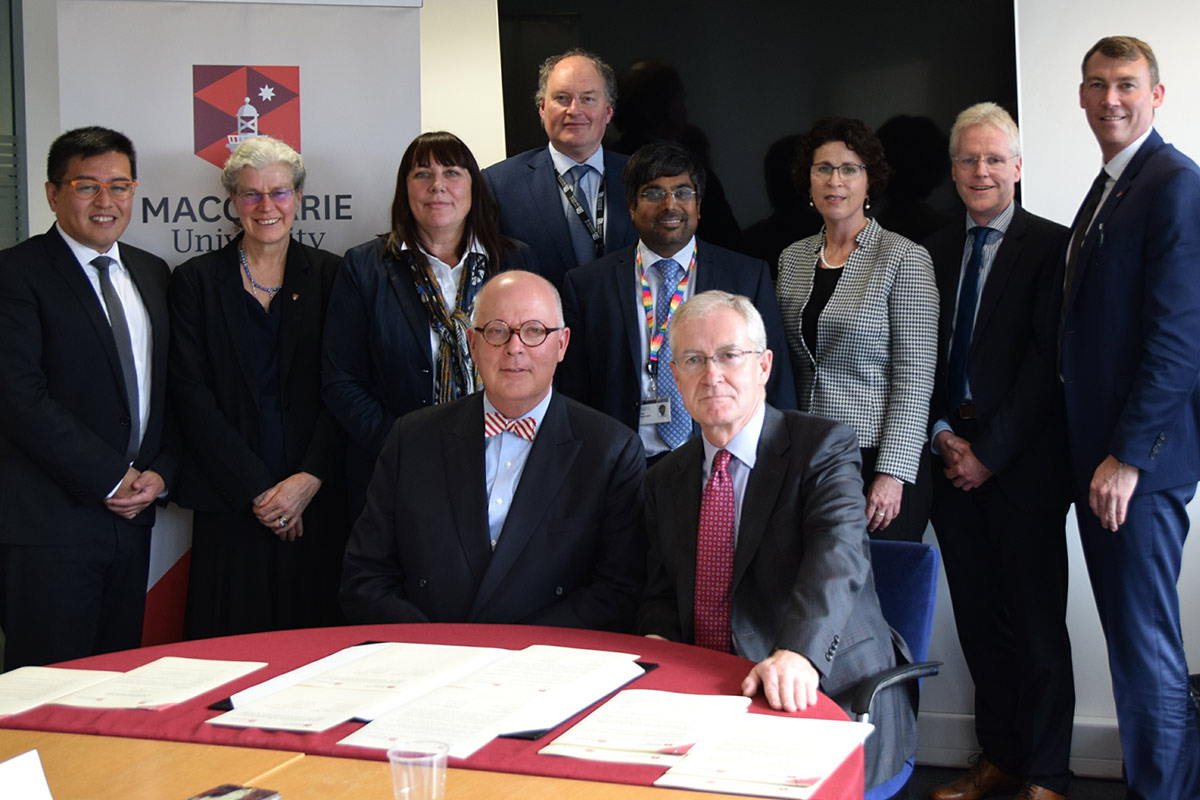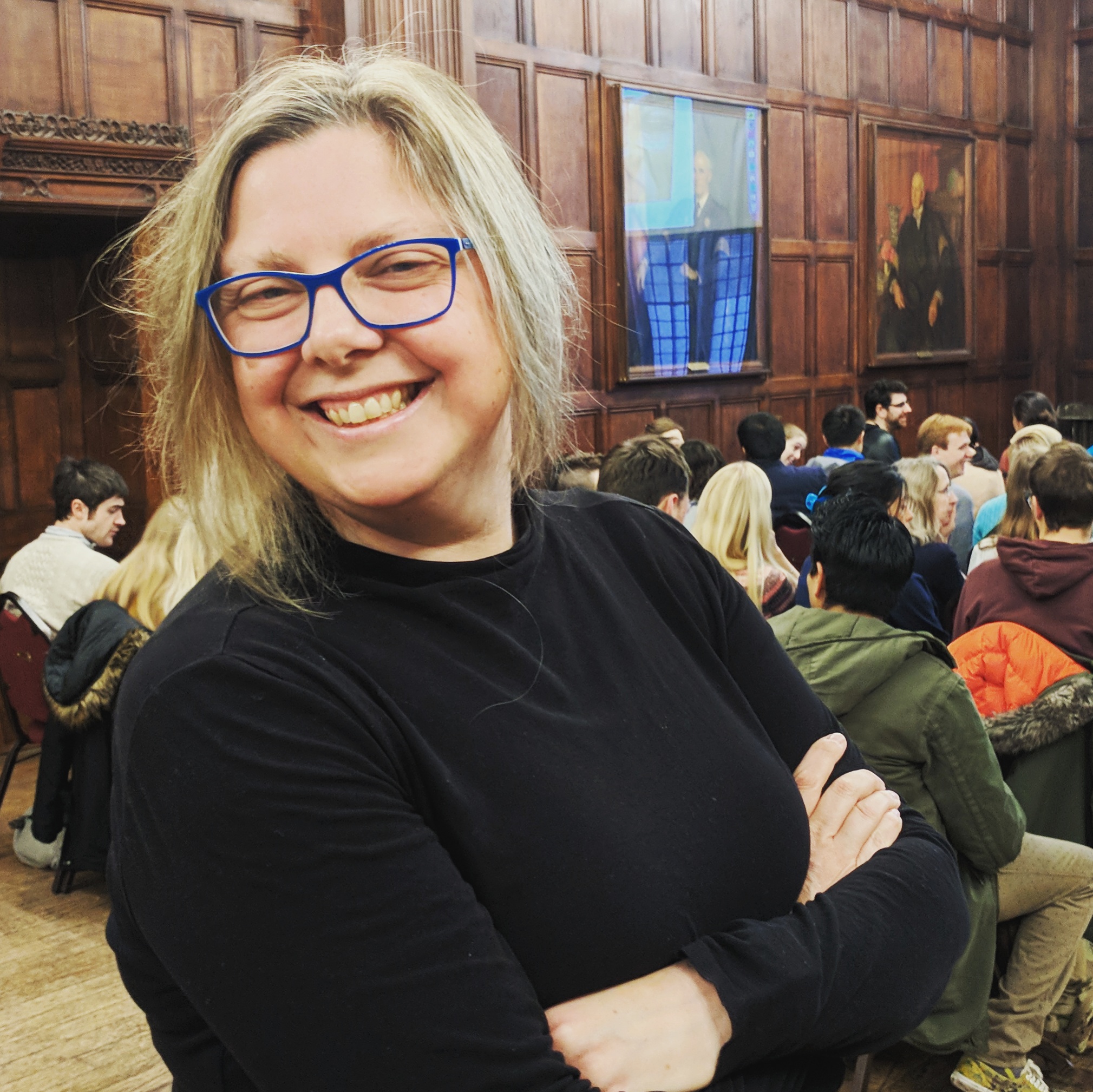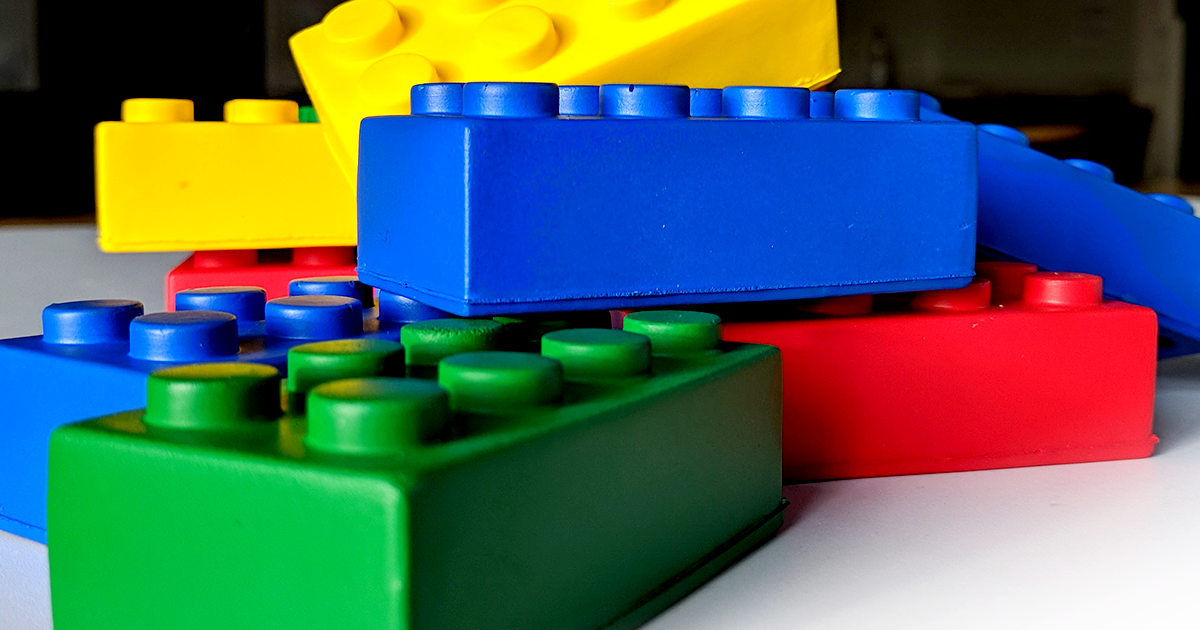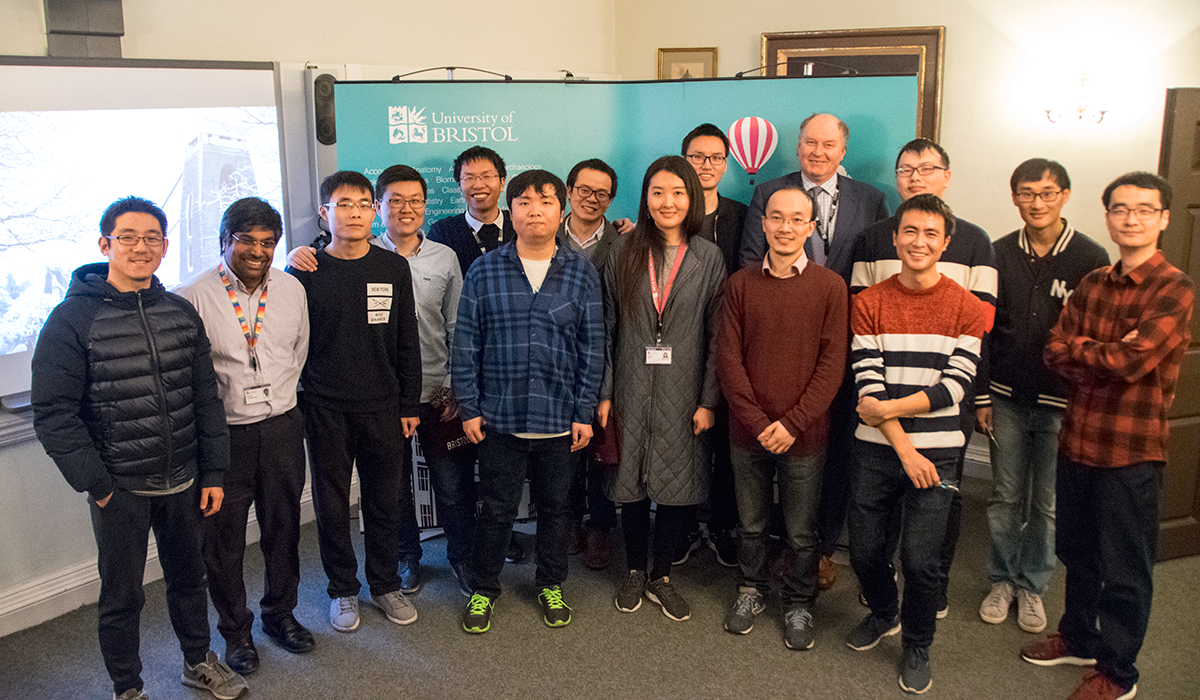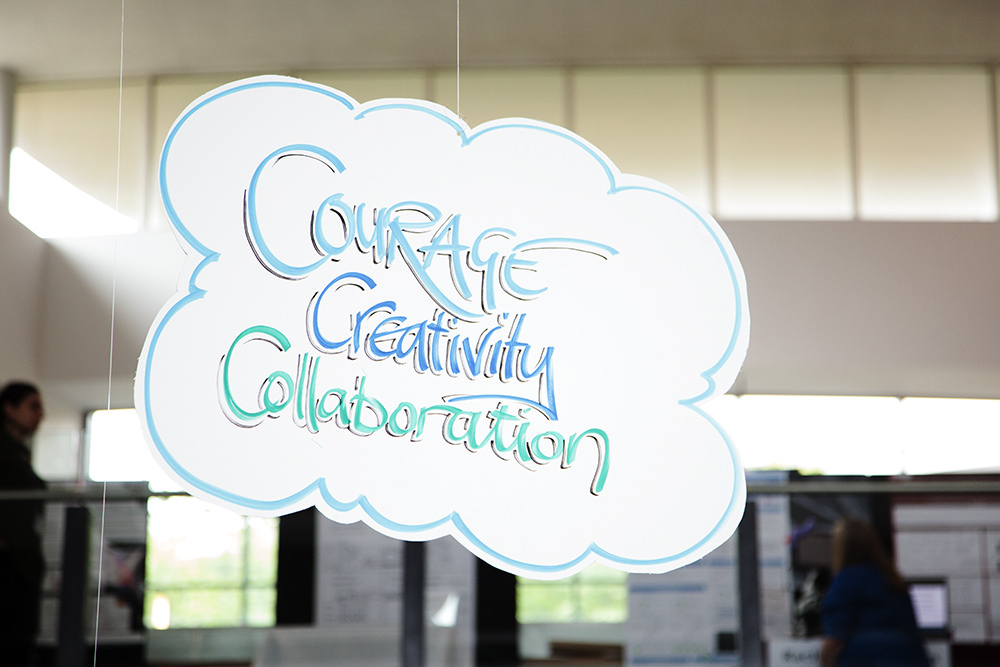As part of the University of Bristol’s fantastic Postgraduate Open Day on 22 November 2017, the Bristol Doctoral College brought together a panel of four PGRs — from a mixture of faculties and at different stages in the research degree experience — and asked them to share their insights and experiences with an audience of prospective postgraduate students.
Over the course of a stimulating half hour, chaired by BDC Director Terry McMaster, the panel reflected on how the PGR experience had changed them and offered some advice to others embarking on the research journey. The following is an edited transcript that stitches together some of the main points raised during the session.
But first, some introductions. The panellists were:
- Sam Brooks, PhD candidate (Engineering)
- Isabella Mandl, PhD candidate (Biological Sciences)
- Jane Nebe, PhD candidate (Education)
- Milo Rengel, MPhil candidate (Classics).
And, without further ado, here are their words of wisdom.
1. Even when you feel stressed out, you’re still picking up new skills
Isabella: “For me, researcher development basically means that you learn a set of new skills that you just didn’t have before starting your PhD. And you might not even notice that you’re learning them, because you’re stressed out or you feel inadequate — those are two totally normal things. But you are definitely going to learn a set of new skills that you didn’t have before. They could be research-based, you could get networking skills that you didn’t have before, you just get writing skills or talking skills.
“So if you end up with a research degree, you’ll end up with a unique set of skills that you’ll figure out that you got during that time. You might not notice it in the process of doing it — but, afterwards, you’ll be ‘oh, OK’.
“And I think that’s what ‘researcher development’ means for me: it’s basically gaining skills, gaining knowledge.”
2. Collaboration creates confidence
Jane: “One thing this PhD has taught me is the importance of collaboration, the importance of networking, the importance of engaging with people — because you cannot do it alone, you need people as much as they need you.
“It’s like acquiring skills to make you a better you; a better person than you were.
“So, I look at my journey over the last three years, and I see that I’m a different person, but in a good way. Not perfect, but in a good way. And there are things that I think that I could do today that I would not have been able to do three years ago.”
3. It’s good to re-learn old skills and break bad habits
Milo: “The other thing that I’ve found useful, even in just my short time here, is that you develop skills that you kind of already had but were maybe just a bit unsure about. So, particularly in terms of research, or in finding knowledge, using that knowledge, applying theories, all that sort of thing.
“I think the other thing is it helped me develop, because I became a little bit cocky and thought ‘yeah, I’m a great researcher, I’ll be fine’. It does take you down a peg — but definitely in a good way, because you unlearn the things that you kind of shouldn’t have learned before, or bad habits, and you re-learn them in a much more constructive way.”
4. Take opportunities to push yourself
Sam: “Like Jane said, the more you get involved, the more you push yourself to challenge yourself, the more you get out of it.
“It’d be easy to sit in your lab or your office and do research and not meet anyone — and go through your whole PhD doing that. And some people would do that, they’d be quite happy to do that.
“But I think you should to take the opportunities to push yourself, because they’re the ones that will help you develop and grow as a person or as a researcher — or just help you with life, basically.”
5. At the start, you won’t know everything you’re going to do
Jane: “Your proposal is supposed to give your supervisor a general idea of what you want to do. You could not know everything that you would do at that point, but it’s important that you have general idea of what you want to do.
“And along this journey, that proposal may change. For some that change may be quite big, for some it will be quite small — and then you have different degrees.
“What I’m trying to say is: just have general idea of what you want to do and understand what has been done around it before, and you’ll present a strong argument when you submit your proposal.”
6. Academics are there to help you
Milo: “I did apply with a particular research topic — and then, about two weeks before I’m supposed to start my course, completely changed it to something absolutely, completely different.
“It was an area that I’d never really looked at before, and I went to my proposed supervisor with this new topic that I was completely unfamiliar with, but he still looked at it and said ‘there’s a lot of promise here, we’ll develop the bits we need to, we’ll cut out what doesn’t need to be in here, but there’s a lot of promise’.
“And I think academics look very scary from the student perspective, but the more you kind of associate with them you realise that they’re there to help you and they want to help you, and so they will look at the ideas and they’ll try and guide you the way you want to go. So you have some autonomy as well, you can say ‘no, I want to do this thing’.”
7. Being challenged isn’t bad — and will help you grow
Sam: “When I was an undergraduate, I was quite successful. I got a first, I was doing quite well. I went to do a PhD and thought ‘oh, this is going to be easy, I’ll walk through this’. And there’s a lot of people who are the same level as you — or smarter. And you’re interacting with them a lot. And you do find times when your ideas will be challenged. A lot of the time you’ll be surprised how often you aren’t challenged. But if you are challenged, you will find that it’s not as bad as you think.
“I think some of the situations where I’ve grown the most are where — with my research, or papers I’ve published, or conferences — I’ve been questioned thoroughly about what I’ve done and had to justify it. And sometimes I can’t justify it 100%. But if you can justify it 80–90%, that’s still good. Especially in academia, you’re never going to be able to satisfy everyone.
“You have to satisfy yourself, I think, and that’s the important thing.”
8. Be open to new input — because research develops quickly
Isabella: “I think one of the main obstacles [for PGRs] is if you learn something differently and then you kind of hold on to that too much. And research develops quickly, so you might hold on to something that’s old, that’s outdated — but, because you’ve learned that and you feel like you’re in control of that, you hold on to it.
“So I think that’s one of the main obstacles, if you’re not open enough to input. Because you’re there to learn. You’re not there to know everything. You’re not there to end up with a PhD but say ‘oh, I could’ve got the PhD at week three because I know everything I know now’.
“You’re there to learn. You’re there to be taught, and to be guided. And I think that’s probably one of the great things, that you have to be open for it as well. Otherwise, you’ll probably run into some quite severe difficulties pretty soon.”
